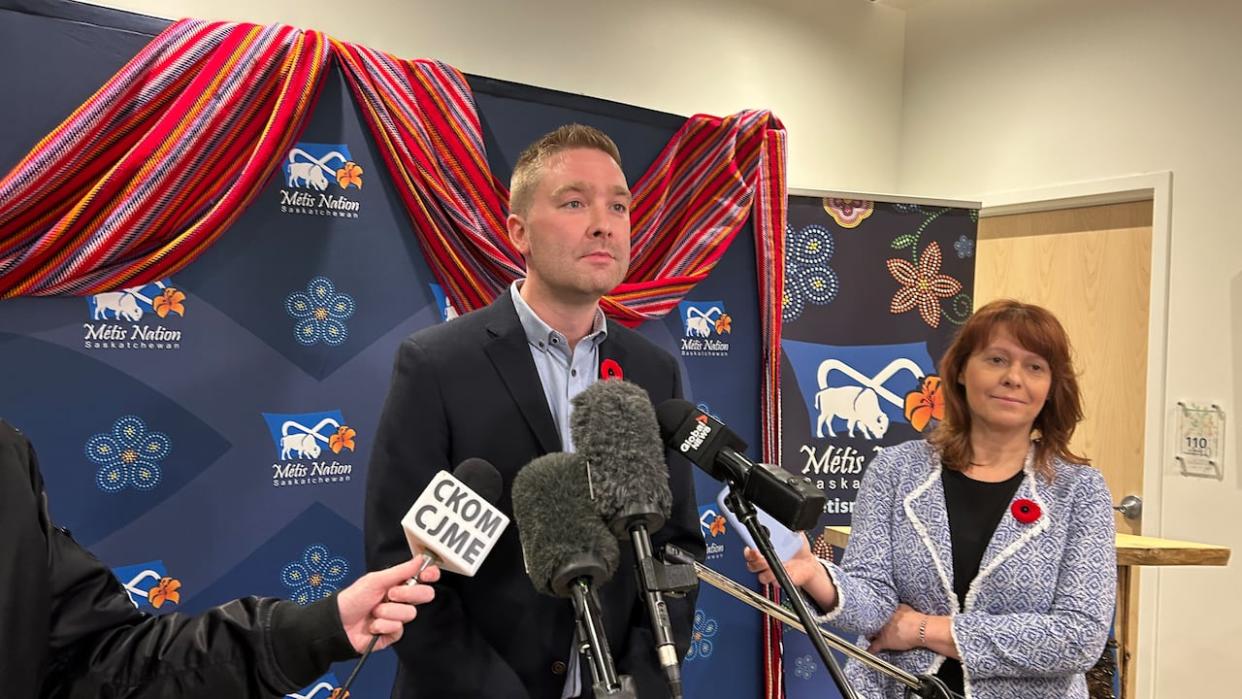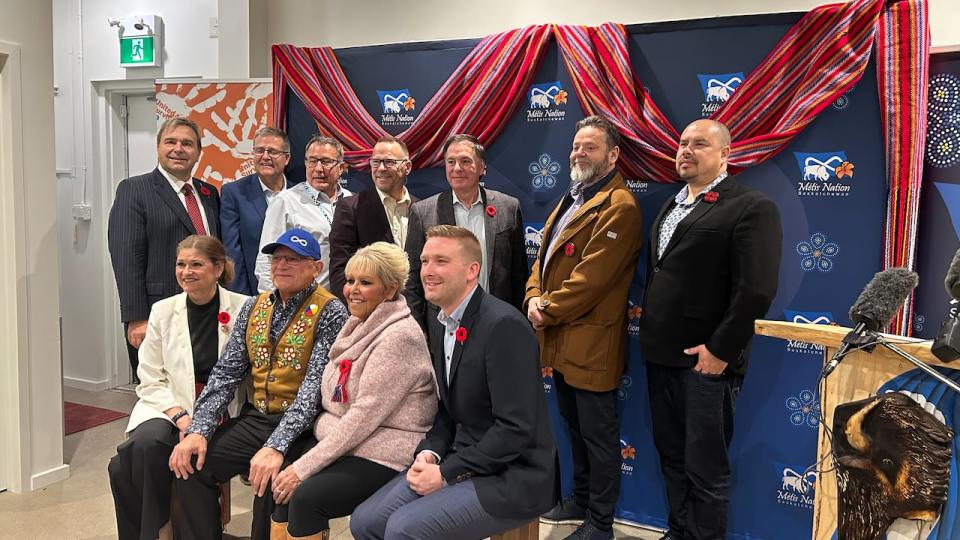Sask. allocates funding for new regulated daycare spaces, youth mental health

Saskatchewan has hit its $10-a-day daycare goal, but has been falling short on child-care space demand. In an effort to fix that, the provincial and federal governments announced 2,349 new regulated child-care spaces across Saskatchewan Friday.
It's been more than two years since the federal and Saskatchewan governments signed the Early Learning and Child Care Agreement, committing to a $10-a-day price ceiling for regulated child care in the province.
Under the agreement, Saskatchewan committed to creating 28,000 new regulated early learning and child care spaces within five years. The latest addition of 2,349 spaces brings the total up to about 5,700 spaces added since August 2021, the province said.
The money for the new spaces is allocated to the Métis Nation-Saskatchewan government and 50 other organizations in 41 communities, to either construct new facilities or expand existing ones. The province plans to allocate nearly 400 additional funded spaces through an application process.
Education Minister Jeremy Cockrill said there have been challenges on the way to meeting that demand for child-care spots.
"Child care was largely unregulated in the province," Cockrill said. "Because only licensed spaces are eligible for funding under this agreement, there's a process to try and move some of those unlicensed spaces to licensed. It's kind of like building an airplane while you're flying it in the air."
Cockrill said hiring more people to staff those spaces has also been challenging.
"We have a growing province. As a ministry we've enhanced the early childhood educator wage enhancement grant as a recruitment and retention strategy," he said.

In a joint announcement Friday, the provincial and federal governments announced 2,349 new regulated child-care spaces across Saskatchewan. (Submitted by CBC News)
Métis Nation-Saskatchewan (MN-S) president Glen McCallum was at Friday's announcement. He said that providing culturally safe spaces for Métis children in their early years is key.
"We know from various studies and our history that children who are raised with their identity, culture, language and values have a stronger chance of thriving," McCallum said.
MN-S is actively acquiring land in Saskatoon, Prince Albert and Regina for 90-space child-care centres in each of those cities.
Funding for these initiatives comes from the Canada-Saskatchewan Canada-Wide Early Learning and Child Care Agreement, injecting nearly $1.1 billion over five years into child care in Saskatchewan. The province has allocated $23.5 million for the 2,349 regulated spaces announced Friday.
Province delivers on $1.7 million for mental health resources
Meanwhile, Moose Jaw has become the latest in a list of 13 communities to expand its rapid access counselling to cover children and youth as a part of a new $1.7-million provincial fund.
Moose Jaw Family Services has hired one additional staff member as a result of the new funds and hopes to fast-track counselling, according to executive director Tara Jones.
Jones said she expects to help up to 20 kids per week from the increase in staff.
"It will definitely reduce wait times. It also allows families that are in need in a crisis or urgent situations to see somebody quickly," she said.
In a Statistics Canada study released in 2021, almost one in five Canadians aged 12 and older surveyed reported they needed some help with their mental health. About 45 per cent of respondents said they felt their needs were either unmet or only partially met.
According to the Canadian Institute for Health Information, wait times in some jurisdictions for community mental health counselling are longer for children and youth up to 18 years of age, compared to adults.
For all ages, the average wait time across Canada is 22 days. For Saskatchewan, it's 12 days.
Under the rapid access program, Jones said, the organization should be able to get the wait times to under a week.
She said there's a shortage of mental health professionals across the country, but any additional hands on the ground could be life-saving.
Mental Health and Addictions Minister Tim McLeod emphasized how important it is to provide counselling to children in need quickly.
A 2019 report from the Saskatchewan Alliance for Youth and Community Well-being says that 23.4 per cent of youth in grades seven to 12 had considered suicide in the past year.
"We know that speaking with somebody when you're struggling with mental health, time is of the essence," McLeod said.


